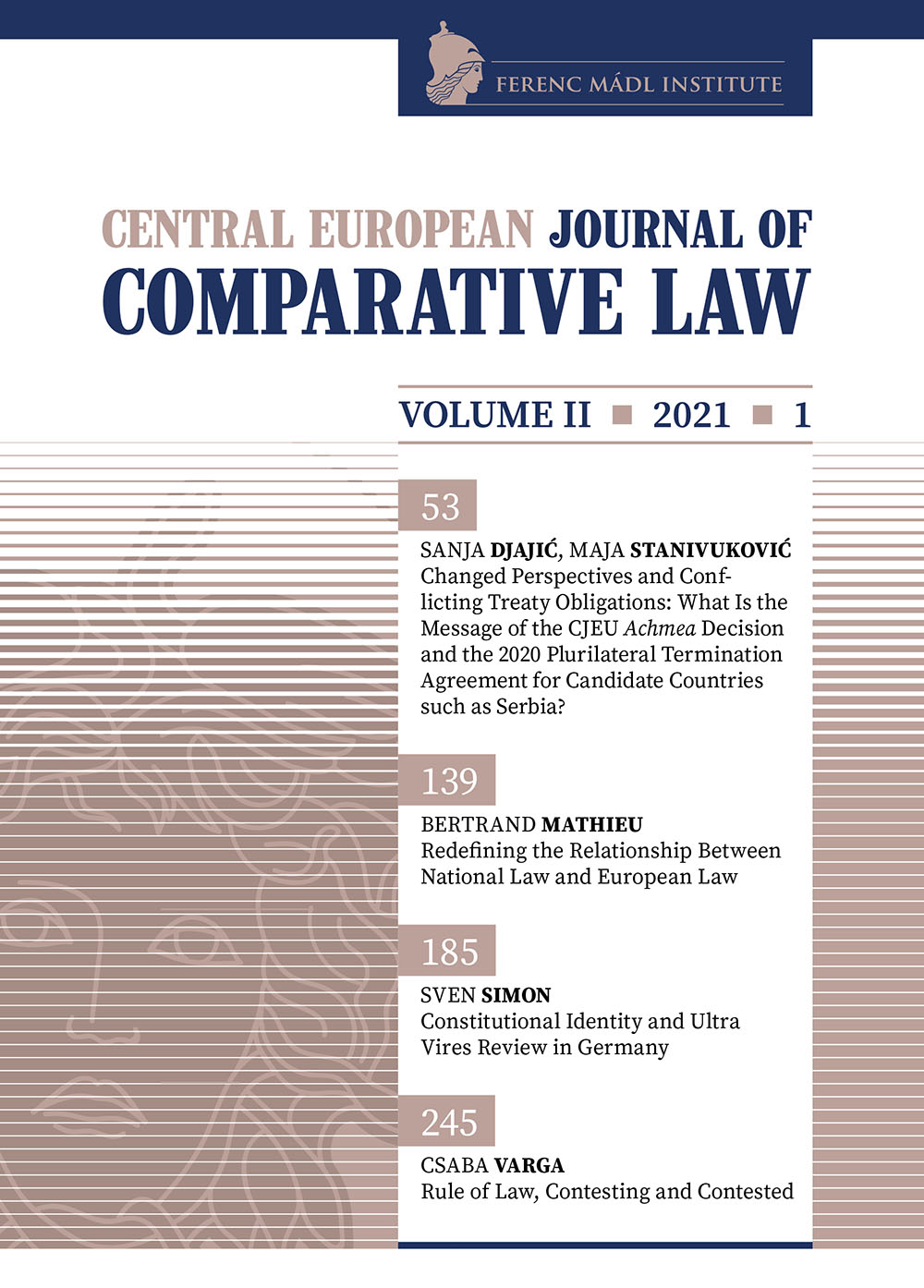Changed Perspectives and Conflicting Treaty Obligations
Changed Perspectives and Conflicting Treaty Obligations
What Is the Message of the CJEU Achmea Decision and the 2020 Plurilateral Termination Agreement for Candidate Countries such as Serbia?
Author(s): Sanja Đajić, Maja StanivukovićSubject(s): Law, Constitution, Jurisprudence, Law on Economics, EU-Legislation
Published by: Mádl Ferenc Összehasonlító Jogi Intézet
Keywords: Plurilateral Termination Agreement; Achmea; bilateral investment treaties; conflict of international agreements; EU law standards; candidate countries
Summary/Abstract: The authors analyse the changed landscape of the EU BIT policy following the Achmea decision and the 2020 Termination Agreement, in particular, their relevance for candidate countries such as Serbia. The perceived risks strongly suggest that some action must be taken before the accession to avoid becoming caught between conflicting obligations under EU law and the BITs, as happened to respondent countries in the cases of Micula and Magyar Farming Company. The potential for conflicts exists in the case of Serbia as well because it already has an obligation to comply with EU law in areas such as competition and state aid law, which may cause it to inadvertently breach investors’ rights under the BITs. Various options that a candidate country can pursue to adjust its bilateral investment treaties to EU law standards are considered in search of the best approach. Difficulties that may be encountered due to the premature termination of sunset clauses and the retroactive termination of arbitration clauses in pending arbitrations lead the authors to conclude that certain adjustments to the course of action adopted within the EU are called for. The proposed action in the case of Serbia consists of consensually amending the 22 Serbia-EU member state BITs following a two-step procedure so that the sunset clauses are terminated at once, whereas the remaining provisions of the BITs are designated by the contracting parties to be terminated on the date of accession. To prevent treaty shopping, these amendments need to be accompanied by comprehensive reform of Serbia’s other BITs that contain overly broad definitions of investors and investments. Some alternative approaches are also taken into consideration, such as the replacement of ISDS with other forms of dispute resolution and the replacement of the Serbia-EU member state BITs with other types of agreements. The candidate countries are advised to adjust their pre-accession commitments, both procedural and substantive, in a timely manner with the incoming EU obligations. These inevitable adjustments should be pursued cautiously by candidate countries to minimise risks and maximise their bargaining power.
Journal: Central European Journal of Comparative Law
- Issue Year: 2/2021
- Issue No: 1
- Page Range: 53-82
- Page Count: 30
- Language: English

